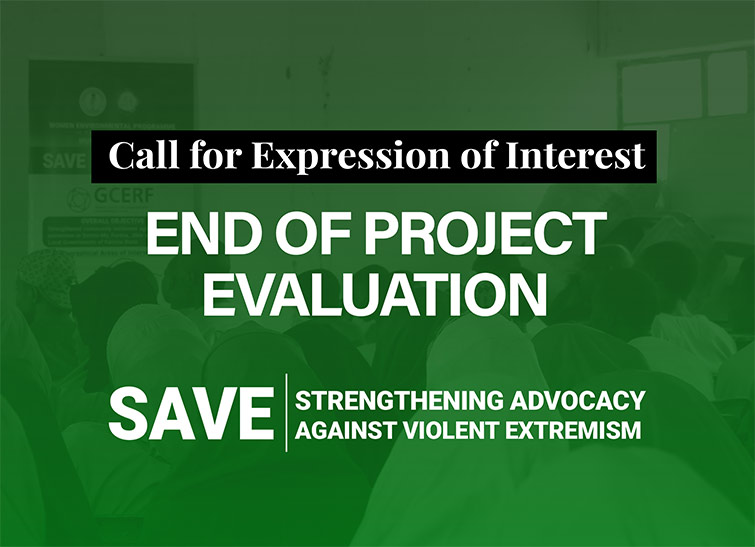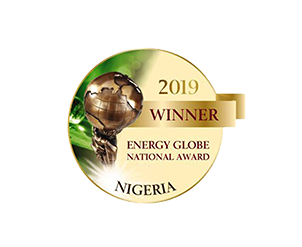
CALL FOR EXPRESSION OF INTEREST: End of Project Evaluation in Katsina State
Terms of Reference for SAVE End of Project Evaluation in Katsina State
Summary
Women Environmental Programme (WEP) is seeking the services of a Research and Assessments Firm to carry out an endline evaluation of a project in Katsina State. This evaluation is part of the deliverables of the “Strengthening Advocacy Against Violent Extremism” (SAVE) Project in Katsina State.
WEP is a non-governmental, non-profit, non-religious, and voluntary organization whose vision is to see a society where the environmental, economic, and political rights of women, children, and youths are protected. Our mission is to empower women and youths to effectively address the environmental, economic and political issues that affect them. WEP has United Nations ECOSOC Special Status, Observer Status to the United Nations Environment Programme (UNEP) Governing Council/Global Ministerial Environment Forum and United Nations Framework Convention on Climate Change (UNFCCC). With the Observer Status, WEP can participate as a major group organization in contributing to the intergovernmental decision-making process in the UN-System.
Background
Katsina State in Northwest Nigeria has been hit very hard by rising insecurity marked by vicious attacks on communities and kidnapping of people by extremists described by state officials as bandits. In actuality, due to its proximity to the North East, Katsina has become a haven of increasingly active terrorist groups, including the Islamic State in the Greater Sahara (ISGS); Jama’at Nusrat al Islam wal Muslimin (JNIM); Al Qaida in the Islamic Maghreb; a splinter of Boko Haram popularly referred to as the Islamic State in West Africa Province (ISWAP); and the Fulani herdsmen of West Africa once rated the fourth-deadliest terror group in the world. VE groups are now active and operational in the state, recruiting and radicalizing community members. The frustrations of young people occasioned by the lack of opportunities for economic and social advancement together with the absence of a sense of purpose have continued to lure young people to the perceived financial gains and improvement in status used as bait. Community structures debilitated with youths joining as informants and local/religious leaders serving as informants/recruiters conniving with the terrorists in recent years.
With funding from the Global Community Engagement and Resilience Fund (GCERF), WEP in partnership with Murna Foundation implemented a project, titled “Strengthening Advocacy Against Violent Extremism (SAVE), which aimed at enhancing target communities’ resilience to violent extremism (VE) by providing interventions that address push and pull factors of radicalization such as:
- Livelihood support to young men and young women;
- Mentorship sessions that address the sense of purpose for young men and young women
- Strengthening community response to insecurity through capacity building training on community policing and human rights, alternative dispute resolutions, interfaith dialogue, early warning, and early response to violent extremist attacks.
- Training on climate-smart agriculture aimed at improving food security, increasing employment of young men and young women as well as adapting to the impact of climate change;
- At the state level, the project advocated for the domestication of the Policy Framework and National Action Plan on P/CVE.
Rationale
The project initiated in January 2022 is scheduled to conclude in June 2024. Consequently, we need to measure the project’s outcomes following the established objectives and performance indicators, as well as to determine both the achievements and difficulties encountered during its implementation. This evaluation will additionally allow us to appraise the long-term viability of the benefits generated and to formulate recommendations and conclusions that will shape future design and program decisions.
Project Goal and Outcomes
Overall Goal: Strengthened community resilience against violent extremism in Dutsin-Ma, Funtua, Jibia and Musawa Local Governments of Katsina State.
Outcome A: Youth trained and supported have continuous and sufficient income for their needs.
Outcome B: Mentored youth and women feel capable of dealing with challenges and take responsibility for their lives.
Outcome C: Trained community members and leaders are able to perform their role to promote security, peace and tolerance.
Outcome D: Religious leaders as peace agents, with increased interaction and trust between religious groups in the communities.
Outcome E: Community members prefer to use alternative dispute mechanisms than violence, and are aware of the threat of VE.
Outcome F: Trained State-level members can perform their role to promote security, peace and tolerance.
Outcome G: State Response and Peace-building Teams are formed and become operational.
Outcome H: Passage of a law/policy in the local assembly that addresses one of the drivers of VE.
Outcome I: Vulnerable community members practice enhanced food production farming in Katsina state as a means for reduced vulnerability and increased resilience to VE.
Outcome J: Partnership Against Violent Extremism (PAVE) Network is operationalized at the state level for resource mobilization.
Scope of the Study
E1- Purpose, Objectives and Scope
The main purpose of this study is to assess the performance and outcomes of the SAVE project goal of strengthened community resilience against violent extremism in Dutsin-Ma, Funtua, Jibia and Musawa Local Governments of Katsina State as per the agreed Result Framework and Workplan. In other words, this assignment is meant to capture what change occurred due to the program interventions, primarily through the measurement of outcome and impact indicators.
The results from the endline assessment will be used for future programming and to be accountable to the community we serve as well as the general public, also to provide data for research for other organizations working to prevent violent extremism in Katsina state and Nigeria. It is against this background that WEP will be conducting an end-of-project assessment to measure the outcomes of the project. The results will be shared with WEP and its implementing partner Murna Foundation the donor and other interested parties.
Objectives of the Study
- To assess the extent to which project results have been achieved, in line with project performance indicators and set targets, by result areas as provided in the logic framework.
- To assess the extent to which project strategies and approaches have led to the achievement of intended results, and consequently project outcomes. This includes the strategies and approaches used, and the relevance of activities carried out to the project goal.
- To provide clear recommendations to WEP and GCERF on gaps and opportunities for improved PVE project design
- The project will evaluate to what extent the GCERF leverage points were achieved; they are Social Cohesion, Community Agency, Equal Access to Opportunities and a Sense of Purpose.
- Evaluate the overall sustainability of the project beyond its completion, considering factors such as institutional capacity, community ownership, and long-term impact.
The consultant will be required to undertake consultation with the WEP team to refine the study questions at the inception phase.
Population: The project’s direct beneficiaries are estimated to a total of 26,474 individuals (Females 13,237 & Males 13,237), while the indirect beneficiaries estimate is 52,948 individuals (26,474 females and 26,474 males). Using these numbers, the consultant is expected to determine the sample size using the appropriate formula.
The beneficiaries are spread across four LGAs which include Dutsin-Ma, Funtua, Jibia, and Musawa. However, the project’s scope also included state-level engagement. The consultant is also expected to reach out to key stakeholders at different levels that benefited from the project including Ministries, Departments and agencies of Government, Youth, Women, CSOs, and Traditional and Religious Organizations.
E2. Key Criteria and Study Questions
Key review questions formulated under each outcome should allow for an assessment of:
Impact/Achievements: What has changed as a result of the project? Has the project made any significant change in strengthening communities’ resilience to PVE.
Relevance: Was the project approach relevant given the national and local context of PVE?
Effectiveness: To what extent are the project activities relevant to strengthening the community’s resilience to violent extremism?
Efficiency: To what extent has the project maximized its resources to achieve the greatest result?
Partnerships: to what extent were partnerships, alliances, and collaborations useful in facilitating project achievement and reaching the right stakeholders?
Sustainability: To what extent has the project incorporated sustainability and to what extent have project stakeholders and beneficiaries demonstrated ownership guaranteeing continuity and what could impede sustainability?
Scale up: What elements of the project have the potential to be scaled up, and what are the key gaps in terms of scaling up these elements?
E3. Methodology
Study Design
The consultant will adopt an appropriate approach for conducting this assessment, encompassing well-defined design, and sampling techniques, and the provision of relevant data collection tools. The methodology must align with the project/program focus areas to assess the outcome level intended project results on beneficiaries and their communities. The focus will also be on their understanding of key concepts and the real-life application of the same according to the outlined curriculum of the activities beneficiaries were trained on. Accordingly, the researchers are expected to employ a mixed methods approach, incorporating both qualitative and quantitative methods to address the evaluation objectives comprehensively. All data should be accurately disaggregated by age, sex, population group and location as outlined in the Result Framework. The engaged consultant is expected to work collaboratively with the WEP Team to design a more detailed and refined methodology.
Sampling Size
The consultants will determine the sampling methods in consultation with WEP and the sample size using the beneficiaries of the project.
Data Sources and Data Collection Methods / Tools
The evaluation will employ a comprehensive mixed-methods methodology, encompassing elements such as a review of secondary data including relevant project documentation. Additionally, it will involve the acquisition of primary data through Key Informant Interviews, Focus Group Discussions, and Surveys, combined with on-site visits by the consultant to project locations. This review will include an extensive consultative process that engages both direct and indirect beneficiaries, along with various stakeholders. At the local and state levels, the evaluation will involve interaction with individuals and institutions, including government agencies with direct or indirect involvement in the project.
Key Reference Documents and Support from WEP
The following key documents will be made available to the Consultant: SAVE project proposal, Theory of Change (TOC), result framework, annual reports, mid-term project report and periodic monitoring and evaluation reports.
The consultant must make use of the project baseline reports (please note that two baselines were conducted on the project) for reference and to ensure that the approach is maintained. However, consideration would be given for modification where appropriate.
The consultant will make use of the result framework to set the evaluation questions, it is expected that the consultant will make use of the outcome indicators and avoid duplication of questions.
The consultant will work closely with the WEP team to ensure that the target population is reached.
Ethical Considerations
Before commencing primary data collection, the team should engage in a discussion of ethical matters. The team responsible for data collection must ensure that participants are fully acquainted with their right to withdraw from the study without any violation of their rights. Additionally, an informational document should be disseminated, elucidating the details about the study, potential advantages and risks, the voluntary nature of participation, and an unwavering assurance of confidentiality to all study participants.
Evaluation Report Format
A Study Report Format maximum 20 pages excluding annexes and should include the following elements:
- Executive summary
- Background description of the Program and context relevant to the Study
- Scope and focus of the study
- Overview of the study methodology and data collection methods, including a Study matrix
- Findings aligned to each of the key Study questions
- Specific caveats or methodological limitations of the evaluation
- Conclusions outlining implications of the findings or learnings
- Recommendations
- Annexes
- References should be fully cited after all important facts and figures
Timeline for the Evaluation
The duration of this end-of-project evaluation is 40 days. These are broken down as follows: Starting Date to 10th of June, 2024 to the 21st of June 2024
|
Activity |
Date |
| Inception meeting and a review of key background documents and existing data collection tools. | 11th June |
| Detailed inception report including detailed draft methodology and sampling approach for quantitative/qualitative data collection. | 11th to 14th June |
| Review of the developed quantitative and qualitative tools finalized in agreement with the Project Team. | 17th June |
| Pre-testing of data collection tools/Modification. | 18th June |
| Final approval from donor for draft methodology and sampling approach for quantitative and qualitative data collection tools. | 19th June |
| Training of data collectors/enumerators. | 20th to 21st June |
| FGDs and key informant interviews (KIIs) / quantitative data collection and data entry. | 24th to 28th June |
| Data analysis and report writing. | 1st to 5th July |
| Submission of Draft Report, Review & Feedback | 8th to 10th July |
| Submission of final Report by the Consultant. | 12th July |
| Dissemination/Validation at End of Project Evaluation/Closeout Meeting. | 16th July |
Requirements
The research organization to be contracted is expected to meet the following criteria:
- Must be registered with the Corporate Affairs Commission of Nigeria
- Must have a good understanding and practical experience of development work including advanced skills in social research, baseline studies, and project impact evaluation.
- Must show evidence of up-to-date tax payment to the government or tax exemption for non-profits, evidence of contribution to pension of personnel, and evidence of compliance with other government regulations.
- Must demonstrate experience in community engagement, knowledge of PVE and Peace-building security, women and youth empowerment projects.
- The lead researcher must have an advanced degree in the field of social and development work, social research, evaluation, or another relevant social science subject).
- The research organization must have a minimum of 5 years’ experience in carrying out similar assignments and capacity for impact evaluation (a report of such work done in the last 3 years is required as evidence).
- Must demonstrate experience in developing tools for project endline and impact evaluations.
- Demonstrated understanding of the role of Monitoring & Evaluation in project cycle and experience of conducting learning reviews and evaluation processes in the development sector.
- Demonstrate how to mainstream gender in delivering on the assignment.
- Ability to apply a range of primary and secondary research methods including participatory methods.
- Experience in using qualitative and quantitative data analysis packages (E.g. SPSS, ATLAS.Ti, Nvivo).
- Ability of the team members to speak Hausa and understand the cultural context of the study area.
Method of Application


